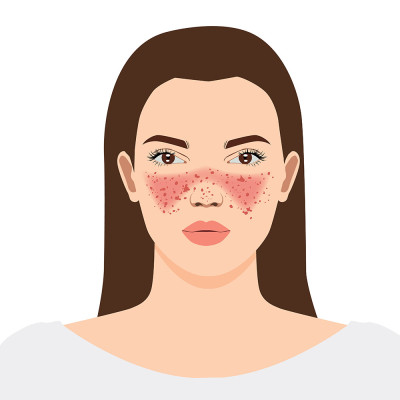Lupus (systemic lupus erythematosus) Patunga pūnaha awhikiri
Systemic lupus erythematosus is an autoimmune condition. It is also sometimes called SLE or simply lupus. In autoimmune conditions your immune system produces antibodies that attack your healthy tissues, as if it was fighting a germ such as a bacteria or virus.
Causes of lupus
The exact cause of lupus is unknown but it is associated with:
- certain genetic factors
- exposure to sunlight
- stress
- hormones
- viral infections
- some drugs.
In Aotearoa New Zealand, lupus is more common in Māori and Pacific peoples and in other ethnic groups with naturally darker skin. It affects adults and tamariki. It is more common in women.
Symptoms of lupus
Lupus is a complex condition that affects people in different ways. It can affect your:
- joints
- skin
- blood vessels
- internal organs.
Lupus has many symptoms and can show in different ways. It can also seem like some other conditions. Some of the key symptoms of lupus include:
- joint and muscle aches and pains
- rashes, including a butterfly-shaped rash on your cheeks
- tiredness and weakness
- recurring flu-like symptoms
- headaches and migraines
- ulcers in your mouth or nose
- dry eyes
- hair loss
- depression.

Illustration of a typical butterfly-shaped rash on the face of a person with lupus
Complications of lupus
Lupus can affect any part of your body so there are many possible complications. Some of them can be life threatening.
If you have lupus you have a much higher risk of having a heart attack or a stroke. Other complications can include:
- kidney damage
- too few healthy red blood cells (anaemia)
- miscarriage
- lung inflammation (pleurisy)
- eye problems like cataracts
- bone damage
- bone thinning and weakening (osteoporosis) caused by treatment with steroids.
People with lupus also have a higher chance of developing anxiety and depression.
The best way to avoid complications is to follow the advice from your healthcare provider and to practice self care.
Diagnosing lupus
If you have symptoms of lupus, see your healthcare provider. They will ask questions and may examine you. They may also do some blood tests and check your blood pressure and wee (urine).
Lupus can be very hard to diagnose because the symptoms are quite common ones. If your healthcare provider thinks you might have lupus, they are likely to refer you to a specialist doctor (a rheumatologist).
Treating lupus
There is no cure for lupus, but you can manage and control it with medication and lifestyle changes (self care).
You will sometimes have flare ups of your symptoms. These may be caused by triggers, which can include:
- hormones and hormonal contraception
- sunlight and ultraviolet (UV) light
- infections such as a cold or flu
- certain medications.
You may need medication to help control your symptoms during a flare if self care is not helping. You might be prescribed anti-inflammatory drugs or steroids.
There are other more complex medications that the specialist doctor might prescribe to help control your lupus.
Self care for lupus
- If you smoke, stop smoking.
- Limit sun exposure or wear protective clothing such as hats and long sleeves, and use an SPF 50 sunscreen.
- Keep physically active, eat well, get enough sleep and reduce stress to help your overall health and wellbeing.
- Learn to pace yourself with your activities and rest when you need to.
Lupus can affect many parts of your life, so it is natural to feel scared, frustrated, sad and sometimes angry. Be aware of these feelings and seek support from your whānau, friends and your healthcare provider if they start affecting your daily life.